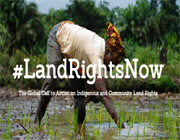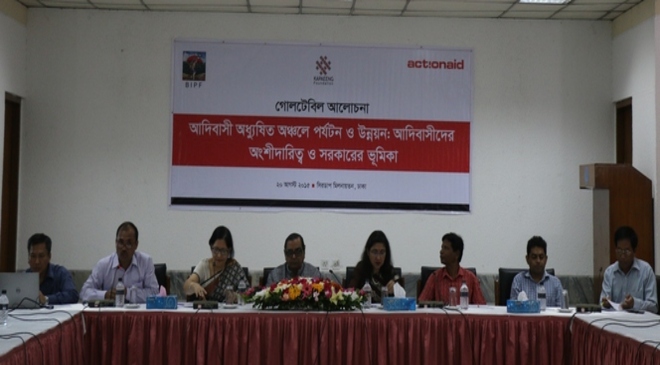
The tourism business in the indigenous territories was destroying lifestyle of the indigenous peoples by violating their property and human rights. The land acquired for implementing tourism projects end up depriving indigenous people of their traditional croplands and in some cases lead to eviction of people from their homes. The tourism industry has appeared more as a threat to indigenous peoples’ cultural integrity and to their right to the land and forest rather than an economic opportunity, speakers told a roundtable on “Tourism and Development inIndigenous Territories: Partnership of Indigenous Peoples and Roles of the Government’ held on 20 August 2015 at CIRDAP Auditorium in Dhaka.
The roundtable jointly organised by Bangladesh Adivasi Forum, ActionAid Bangladesh and Kapaeeng Foundation highlighted on the burning human rights issues facing indigenous peoples as a result of proliferation of tourism in indigenous territories of Bangladesh.
Mr. Rashed Khan Menon, MP and Honourable Minister of Ministry of Civil Aviation and Tourism was present in the roundtable as Chief Guest while it was presided over by Mr. .Rabidranath Soren, Chairperson, Kapaeeng Foundation and Jatiya Adivasi Parishad. Dr. Sadeka Halim, Former Information Commissioner and Professor, University of Dhaka; Mr. Sadhuram Tripura, Member, Chittagong Hill Tracts Regional Council (CHTRC); Mr. Sanjeeb Drong, General Secretary, Bangladesh Indigenous Peoples Forum and Mr. Robaet Ferdous, Associate Professor, University of Dhaka also addressed the roundtable. Mr.Mangal Kumar Chakma, Advisor of Kapaeeng Foundation delivered the keynote paper on “Tourism and Development in Indigenous Territories: Partnership of Indigenous Peoples and Role of the Government” while Ms. Farah Kabir, Country Director, ActionAid Bangladesh moderated the roundtable.
Mr. Rashed Khan Menon said, there are initiatives to engage CHT Regional Council and three Hill District Councils (HDC) in order to develop tourism in the CHT in accordance with the CHT Accord. There is a clash between the Government, and the CHTRC and indigenous peoples in this regard. This issue has to be addressed through dialogue.
Civil Aviation and Tourism Minister, Mr. Menon, mentioned that the main problem in the Chittagong Hill Tracts (CHT) is land problem. There have been initiatives undertaken to amend the contradictory provisions of the CHT Land Dispute Resolution Commission Act. However, it is a matter of regret that the Act has not been amended properly yet. An important provision of the CHT Accord is dismantling of temporary military and paramilitary camps – neither there has been much progress in this regard. For all these reasons, a sense of lack of confidence has grown among indigenous peoples. While introduction and expansion of tourism in indigenous territories, the culture and way of life of indigenous peoples must be taken into consideration. While starting-up tourism in any area, the engagement and incorporation of the locals including indigenous peoples should be given paramount importance. But the reality is different. As a result of lack of these, the Mro people were evicted as the Nilgiri Resort in Bandaran was built. If the tourism can be done in the forms such as eco-tourism and community-based tourism, it would contribute to the economy of Bangladesh and may create many employments.
Former Information Commissioner Dr. Sadeka Halim said, while discussing about tourism, we have to raise some questions – how do we sight the lands in the hill tracts? Who does the land belong to where the tourist spots have been set up? The land where the Nilgiri Resort is situated nowonce belonged to the Mro people. When victim Mro people protested against setting up of the resort, they were intimidated and tortured. This is how the tourist spots have been set up in the CHT. Wherever a tourist spots is set-up, the leadership of indigenous peoples in relation to that tourists pot should be ensured. Tourism, a subject of the CHT Accord, has not been transferred to the HDCs in accordance with the CHT Accord.
Ms. Farah Kabir opined that the engagement of the indigenous peoples in tourism development in their areas should be ensured to protect nature, forests and life of the minorities.
Bangladesh Indigenous Peoples Forum General Secretary Mr. Sanjeeb Drong said, the existing idea of tourism is a shallow concept that represents nothing but a vague representation of indigenous peoples in some concrete infrastructure, where indigenous knowledge are ignored and indigenous peoples are deprived of the benefits come out of it. While establishing tourist spots in indigenous territories, people of that soil should be involved. Tourism has to be such that will not harm the culture, education, health and traditional systems of indigenous peoples. He said, tourism projects should have indigenous partnership, they should also not disturb the ecology of the area. Building wide roads through the forest and constructing fancy houses cannot be tourism.
CHTRC Member, Mr. Sadhuram Tripura, said, as per the CHT Accord, the CHTRC Act and three HDC Act have been enacted. The Tourism Department has been transferred to the HDCs alongside other subjects. However, ironically, the Tourism Department has not been transferred properly. Although the CHTRC wants to work in cooperation with all, the Government doesn’t seem wants to do so. The voices of indigenous peoples should be heard while introducing or expanding tourism in indigenous territories.
DU Associate Professor, Mr. Robaet said, indigenous peoples are being evicted from their ancestral lands in the name of tourism; their populations are being exterminated. There will be no proper tourism, if the tourism is based on the philosophy of destruction of the nature and it is not for the development of the locals. There are a good number of hills in the CHT that are named after the names of military and civil bureaucrats. This politics of destroying the tradition, culture of indigenous peoples through erasing the names of lands given by indigenous peoples will not bring any positive consequences.
The Chair of the event, Mr. Rabindranath Soren, said that the land rights issues of indigenous peoples must be taken seriously. Indigenous peoples are losing their lands and experiencing gross human rights violations due to land-related issues. If there is no land then the development will not have any sense in the long run. Alongside considering land issues, the protection of historically important sites across the country should be ensured.
Mr. Mangal Kumar Chakma said that the tourism projects are being designed and implemented without representation of indigenous people. Any programme that harms ethnic diversity, tradition and nature is unacceptable, he added.
Mr. Chakma added that the special administrative system of the CHT, composed of CHTRC and three HDCs, has not been taken into consideration while formulating the National Tourism Policy. Since there is no strongmeasure to protect the lands of indigenous peoples while planning and implementing any development project including tourism, this process is being naturalised and legitimated to uproot indigenous peoples from their lands. There should be measures for protection of indigenous culture and language potentially adversely affected by the tourism industry. In compliance with the CHT Accord, for any development affecting indigenous peoples, indigenous people and the leaders of this region must be consulted and give their full consent regarding any proposed development projects in this region.



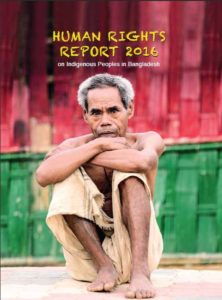
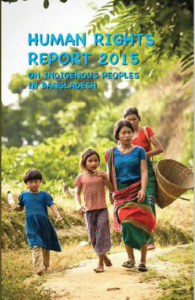
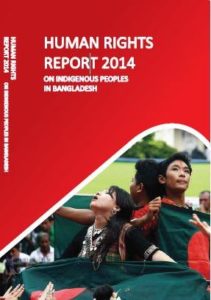
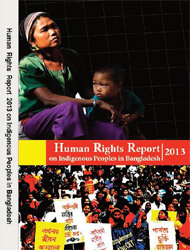
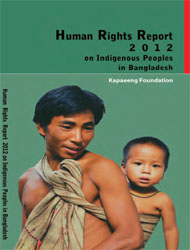
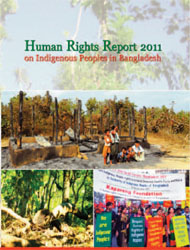
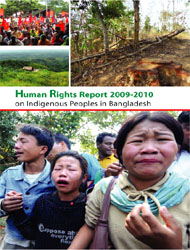

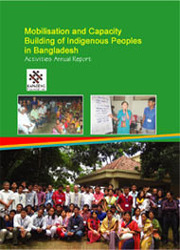



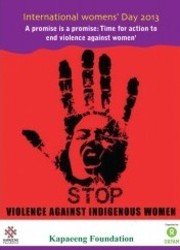
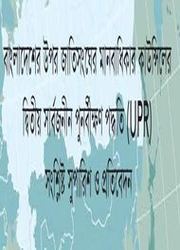
 August 22nd, 2015
August 22nd, 2015  KapaeengUser
KapaeengUser  Posted in
Posted in 